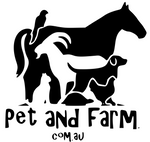Description
Specially formulated to remove dead skin cells, reduces red marks and blemishes, eliminates skin infections, soothes the skin
and revitalises the growth of healthy hair and skin. Cleanses the skin, leaving it soft, smooth and shiny.
Ideal for use on large areas of damaged or inflamed skin.
Common skin infections include - Rain Scald (Rain Rot), itchy dock & sweet itch.
Size: 1L, 5L 20L
Contains: Double Strength Apple Cider Vinegar & essential oils.
For areas heavily affected and damaged (NO BROKEN SKIN OR WOUNDS) mix 1 part Skin Repair Wash to 3 parts Water and dab onto affected area with a sponge. Leave the Skin Repair Wash on to dry. Do not rinse off.
As a general wash use 1 part Skin Repair Wash to 10 parts water and use sparingly as a rinse. Best results are achieved if the horse or animals is wet thoroughly first. Wet the whole area or the area that needs to be washed such as the dock and tail. When area is just damp, sparingly apply the Skin Repair Wash with a sponge or cloth. Leave the Skin Repair Wash on to dry. Do not rinse off.
Rain Scald is caused by a bacteria (Dermatophilosis congolensis), that lives on the skin of your horse.
How is it contacted ?
- Bacteria live on the body and inthe right conditions (warm and moist) they start to multiple 10 fold.
- There must be the right moisture and warmth in the environment.
- There has to be skin trauma for the bacteria to invade the skin and breed. The skin trauma usually occurs as the horse has become uncomfortable in the wet moist conditions and will rub themselves, causing abrasions to the skin surface.
- Other ways for infection include the carrier fly, biting the skin causing damage, resulting in broken skin.
Common areas of infection are
- Croup and loins
- Sides of the underbelly
- Saddle area
- Neck and face
What will I see?
The infected areas of the skin will see a discharge which dries leaving the hair matted. The skin in the area dies and becomes flakey. Underneath the skin can be pink and moist. It is very tender and can bleed when the surface crusts are removed. The infection itself does not cause the horse to be itching, but the dry flakey skin as it lifts from the surface may cause the horse discomfort. If the infection is left unattended, it may spread to the body and limbs that may cause swelling and general un-wellness.
TREATMENT - The infection needs to be eliminated by an antibacterial wash or shampoo. This will need to be repeated until visible signs of improvement are evident to the damaged areas.






